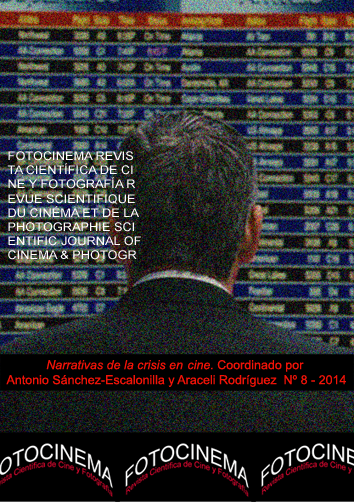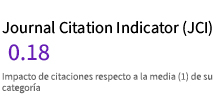El drama pasional de la mujer investigadora. Un arquetipo femenino de la crisis
DOI:
https://doi.org/10.24310/Fotocinema.2014.v0i8.5946Abstract
En este artículo se estudia la narrativa audiovisual de la mujer investigadora. En la historia del cine, la presencia de este arquetipo femenino se ha fortalecido especialmente en periodos de crisis del relato de la Historia, y puede leerse como un trayecto de búsqueda hacia otra identidad femenina. Con el fin de plantear algunas de las claves más significativas de su imaginario audiovisual se realiza un breve análisis del trayecto histórico de este arquetipo. Siguiendo el método del análisis textual, se presentan como casos de análisis un relato informativo y tres textos audiovisuales: el episodio “Piloto” de la serie televisiva Homeland (M. Cuesta, 2011), El silencio de los corderos (J. Demme, 1991) y Recuerda (A. Hitchcock, 1945). En estos tres textos, la configuración del drama pasional toma como vehículo de expresión la mirada femenina. Esta mirada pasional hacia un objeto de deseo (investigación), que atrae y a la vez inquieta, expresa la crisis de la subjetividad femenina con la que se inicia un inestable y peligroso trayecto de investigación hacia otra identidad, distinta a la habitual en el discurso institucional sobre “la mujer”.
Palabras clave:
narrativa audiovisual; mujer investigadora; drama pasional; neonoir, identidad; postmodernidad.
Keywords:
audiovisual narrative; female investigator, passionate drama, neonoir, identity, postmodernism.Downloads
Metrics
Publication Facts
Reviewer profiles N/A
Author statements
Indexed in
-
—
- Academic society
- N/A
- Publisher
- Universidad de Málaga
Downloads
Published
How to Cite
Issue
Section
License
All contents published in Fotocinema Revista científica de cine y fotografía are protected under the Creative Commons Attribution-NonCommercial-ShareAlike 4.0 International (CC BY-NC-SA 4.0) license. All about this license is available in the following link: <http://creativecommons.org/licenses/by-nc-sa/4.0>
Users can copy, use, redistribute, share and exhibit publicly as long as:
- The original source and authorship of the material are cited (Journal, Publisher and URL of the work).
- It is not used for comercial purposes.
- The existence of the license and its especifications are mentioned.
There are two sets of authors’ rights: moral and property rights. Moral rights are perpetual prerogatives, unrenounceable, not-transferable, unalienable, imprescriptible and inembargable. According to authors’ rights legislation, Fotocinema. Revista científica de cine y fotografía recognizes and respects authors moral rights, as well as the ownership of property rights, which will be transferred to University of Malaga in open access. The property rights are referred to the benefits that are gained by the use or the dissemination of works. Fotocinema. Revista científica de cine y fotografía is published in an open access form and it is exclusively licenced by any means for doing or authorising distribution, dissemination, reproduction, , adaptation, translation or arrangement of works.
Authors are responsable for obtaining the necessary permission to use copyrighted images.














13.png)



